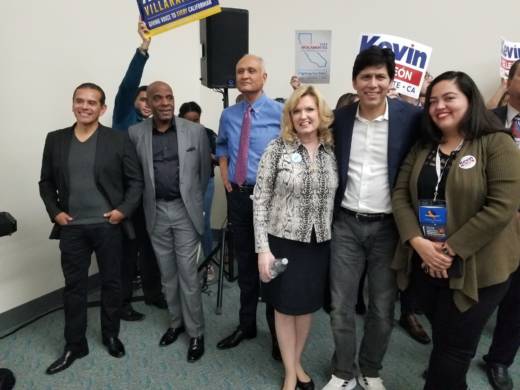Organized labor has long been the backbone of the political left, but at this weekend's California Democratic Party convention in San Diego union members made clear to candidates that in their view not all Democrats are created equal.
The Labor Caucus meeting Friday night was a big draw for politicians hoping to gain influential union support and win convention delegates critical to securing the party's official endorsement.
Each candidate got a few minutes to speak and the crowd clearly had its favorites. They clapped only politely for U.S. Senator Dianne Feinstein, who asked for their support in passing stricter gun control legislation. But the enthusiasm was audiblygreater for her challenger, State Senator Kevin de León (D-Los Angeles), who touted his legislative accomplishments that are more in line with their priorities.
"Together, we fought for a $15 minimum wage," de León said to cheers, "because no one who works full time should ever have to live in poverty in California."
Gubernatorial candidate Gavin Newsom also fired up the crowd by lashing out at the Trump administration.
